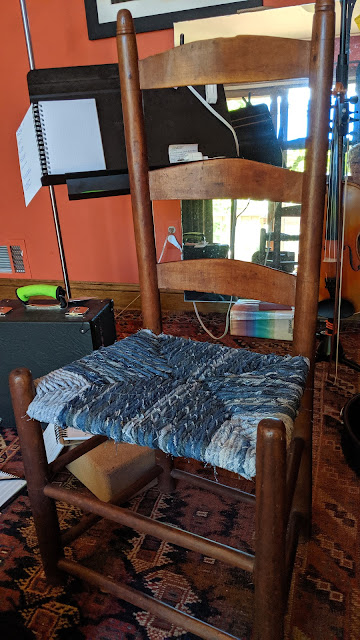Secrets of Magic Craftsmanship
I picked up a copy of Salvadore Dali's "50 Secrets of Magic Craftsmanship" in a bookstore.
 That guy who painted the melted clock, as you may know, was a groundbreaking surrealist painter, photographer and filmmaker, You may also know that Dali was famously an eccentric, egoistic self-promoter, famous for quotes like:
That guy who painted the melted clock, as you may know, was a groundbreaking surrealist painter, photographer and filmmaker, You may also know that Dali was famously an eccentric, egoistic self-promoter, famous for quotes like:
The book is full of Dali's characteristic, flamboyant language. A lot of it seems to make no sense:
 But then there are whole passages of things like how to grind paint. What type of brush to use for certain effects. What type of brush strokes to use. Like this one:
But then there are whole passages of things like how to grind paint. What type of brush to use for certain effects. What type of brush strokes to use. Like this one:
As a martial arts teacher and as a musician, I try to encourage people, to point out the small successes to keep them motivated on the long road to mastery. But all students of any discipline need to face the fact that if we really want to improve, we're going to have to spend a lot of time on the minutiae, the details, the repetition. That work can be daunting. It takes a lot of time. Not hours. Years.
Oddly, it's just when we are faced with this fact that so many of us decide we just don't have the "special talent," the "genius," the "natural ability." We focus on the neighbor's 10-year-old son the guitar prodigy. But I absolutely promise that if you dig a little deeper into that story you'll hear about how the kid spends all his waking hours playing guitar.
So, when I find myself thinking I just don't have the "special talent," I remember Dali, and keep practicing my brush strokes.
 That guy who painted the melted clock, as you may know, was a groundbreaking surrealist painter, photographer and filmmaker, You may also know that Dali was famously an eccentric, egoistic self-promoter, famous for quotes like:
That guy who painted the melted clock, as you may know, was a groundbreaking surrealist painter, photographer and filmmaker, You may also know that Dali was famously an eccentric, egoistic self-promoter, famous for quotes like:"Each morning when I awake, I experience again a supreme pleasure - that of being Salvador Dali"In the book the artist promised to provide the key that would save modern art "from chaos and laziness." I admit, I was kind of fascinated in what Dali, the self proclaimed greatest artist of all time, offered to teach.
The book is full of Dali's characteristic, flamboyant language. A lot of it seems to make no sense:
"Begin, then, by knowing that according to the Dalinian aesthetic the tulip is a horrid thing next to celluloid"
 But then there are whole passages of things like how to grind paint. What type of brush to use for certain effects. What type of brush strokes to use. Like this one:
But then there are whole passages of things like how to grind paint. What type of brush to use for certain effects. What type of brush strokes to use. Like this one:"Since the colors which have much body are those which most require to be gummed in order that they may adhere to the paper after they have been applied, use must also be made of gummed water, which is prepared in the following manner..."
It took me a while to hone in on Dali's essential idea, which is that, while passion, intent and vision are essential to the artist, without technique these are nothing.
"Modern painters having almost totally lost the technical tradition of the ancients, we can no longer do what we want to do. We can only do 'whatever comes out of us.'"
Therefore, he insists on meticulous attention to the details of the craft at the same time that he embraces an "unknown element" that includes luck, inspiration and an almost lunatic ability to reach for the impossible.
Magic Craftsmanship.
As a martial arts teacher and as a musician, I try to encourage people, to point out the small successes to keep them motivated on the long road to mastery. But all students of any discipline need to face the fact that if we really want to improve, we're going to have to spend a lot of time on the minutiae, the details, the repetition. That work can be daunting. It takes a lot of time. Not hours. Years.
Oddly, it's just when we are faced with this fact that so many of us decide we just don't have the "special talent," the "genius," the "natural ability." We focus on the neighbor's 10-year-old son the guitar prodigy. But I absolutely promise that if you dig a little deeper into that story you'll hear about how the kid spends all his waking hours playing guitar.
So, when I find myself thinking I just don't have the "special talent," I remember Dali, and keep practicing my brush strokes.



I am a genius!!!
ReplyDelete